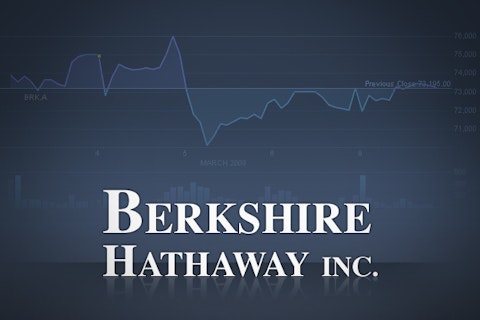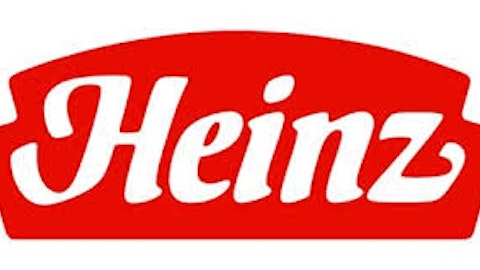Since November, shares of Berkshire Hathaway Inc. (NYSE:BRK.A) have soared by more than 15%, easily outpacing the roughly 10% gain of the broad-based S&P 500, of which Berkshire is a member. But if you invest in the S&P through an index-tracking ETF, you may not have enjoyed as much of Berkshire’s big gains as you might expect.
To understand why, you have to look at how the companies behind the market’s popular benchmarks set up their indexes. In the case of Berkshire and several other companies, a little-known rule that Standard & Poor’s follows in calculating the S&P 500 leaves them underrepresented in comparison to their total size.

The culprit here is a change in methodology that S&P implemented in 2005. S&P made the decision to change its indexes to use float-adjusted market capitalization weighting, following in the footsteps of competing index providers MSCI Inc (NYSE:MSCI) and FTSE 100 (INDEXFTSE:UKX). Using float-adjusted weights, large blocks of stock that insider owners and other big investors own are excluded from the calculation of a company’s market cap. As a Yahoo! Finance article explained recently, most of the time, that doesn’t have much impact on most big companies, but when insiders have retained a big portion of a company’s shares — as with Berkshire due to Warren Buffett’s 21% stake in the company — it can make a huge difference. In general, the rule leads to companies with heavy insider ownership getting penalized.
The justification for using float-adjusted weights is closely connected to the desire to make index investing as easy as possible to implement. Without adjusting for actual share counts available for purchase, index ETFs could find themselves in a position in which it would be impossible to pick up all the shares of stock they would need in order to track their underlying index correctly.
How you’ve missed out
The problem with using float-adjusted weighting, however, is that insider-owned companies have often outperformed their peers. Consider some of the stocks that have the biggest adjustments to their actual market caps due to the float-adjusted weight rule:
- Oracle Corporation (NASDAQ:ORCL)‘s Larry Ellison owns a 23.5% stake in the business software giant worth nearly $39 billion. With the stock having returned an average of more than 21% annually over the past 20 years, S&P investors would have missed out on huge gains if the index company had made its float-adjusted shift earlier than 2005.
- For Amazon.com, Inc. (NASDAQ:AMZN) , the 19% stake that Jeff Bezos owns is worth more than $23 billion. Since 2003, the stock has risen 12-fold, with 29% annual gains over the past five years getting heavily discounted by the float-adjustment rule.
- The insider team of Larry Page, Sergey Brin, and Eric Schmidt together own more than 15% of Google Inc (NASDAQ:GOOG), with even greater voting control. The search giant doesn’t have as long a history as its peers on the list, but the company’s better than 30% gain over the past year hasn’t gotten full credit in its influence on the S&P’s return.
Moreover, it isn’t always a traditional insider individual who affects a company’s float. With Visa Inc (NYSE:V) , some of the banks that initially formed the formerly private card-processing company have retained their shares, and those blocks get discounted for float-adjustment purposes.





